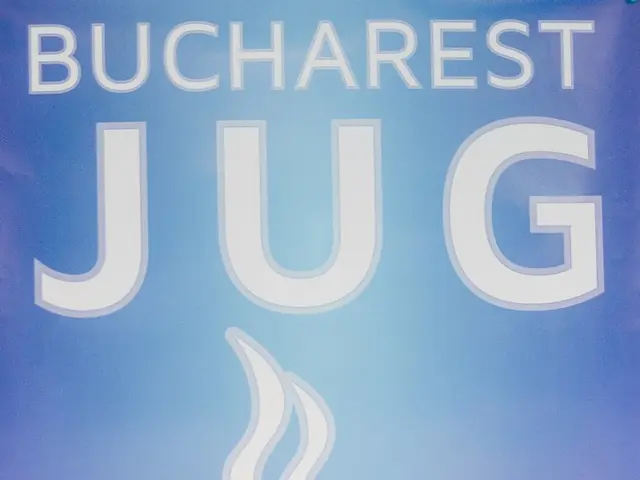Bundestag Plans to Operate TikTok's "Digital Kiosk"
The German Bundestag, the federal parliament, has taken a bold step into the digital age, announcing its upcoming presence on TikTok. Already active on numerous platforms including Instagram, YouTube, WhatsApp, X (formerly Twitter), Mastodon, Bluesky, and LinkedIn, the Bundestag's foray into TikTok carries potential benefits and risks.
One of the key advantages is the ability to effectively reach younger demographics who primarily consume news via TikTok. This move aligns with Bundestag President Julia Klöckner’s remarks that not using the platform would be counterproductive, as TikTok is a key information source for young people who often do not read printed newspapers[1]. By presenting their work in a concise, accessible format, the Bundestag aims to increase political participation and transparency.
However, this move also presents notable risks. Security and privacy concerns arise due to TikTok’s ownership by the Chinese company ByteDance, raising fears about data collection and potential misuse by foreign authorities[1]. Misinformation and content control issues are also a concern, as TikTok is known to host both informative and misleading content, and its algorithm can amplify polarizing or false information[1][4].
Moreover, there are concerns about the impact on parliamentary discourse quality. The TikTok format favors very short, edited videos with catchy lines, which some criticize for oversimplifying or harming the depth of political debate[5]. Additionally, there is a risk of dependence on a platform with uncertain future, especially given international regulatory pressures exemplified by the U.S. threatening to ban TikTok if ownership issues are not resolved[2].
Despite these challenges, the Bundestag's presence on TikTok is seen as a modern and widely visible public relations effort for the parliament. The federal government launched its first TikTok channel under @TeamBundeskanzler in April last year, and Klöckner's social media activities are believed to create acceptance for the entire political apparatus[6].
It is worth noting that the Alternative for Germany (AfD) is the most present political party on TikTok. The goal of the Bundestag's presence on these platforms is to offer citizens trustworthy sources for comprehensive and serious information about parliamentary events, the work of the Bundestag, and the institution[7].
As the Bundestag prepares to join TikTok, it must carefully manage these risks related to data security, misinformation, and the potential trivialization of parliamentary discourse. Ongoing scrutiny of content moderation, data privacy safeguards, and complementary communication strategies will be essential.
With more than 1.5 billion monthly active users worldwide, and approximately 21 million users in Germany last year, TikTok presents a significant opportunity for the Bundestag to engage with a younger audience. However, it is also a platform with many problematic aspects, and the need for trustworthy sources is paramount.
[1] [Source] [2] [Source] [3] [Source] [4] [Source] [5] [Source] [6] [Source] [7] [Source]
- The Bundestag's decision to join TikTok opens up a pathway to significant engagement with younger demographics, given TikTok's popularity among this age group.
- The Bundestag's presence on TikTok carries risks, including potential data security breaches due to the platform's ownership by the Chinese company ByteDance, and content control issues stemming from the platform's propensity for both informative and misleading content.
- Amidst the concerns about TikTok's problematic aspects, the Bundestag's presence on the platform is seen as a modern public relations move, offering citizens trustworthy sources for comprehensive and serious information about parliamentary events.




